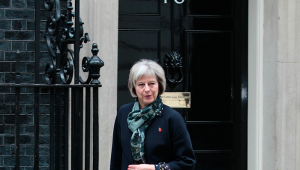May announced at the start of this week’s Conservative Party conference that graduates would not have to start repaying their student loans until they started earning £25,000 a year – up from the current level of £21,000 a year.
The IFS said this would save middle-earning graduates up to £15,700 over their lifetimes, but it adds around £2.3bn a year – or 40% – to the public cost of providing higher education.
The think-tank also estimated that the changes will mean around 83% of graduates will not have paid back their student loans by the time the debt is written off 30 years after graduation, up from 77%.
The freeze on tuition fees, also announced by May, only has a very small impact in the short-run and will only reduce repayments for the very highest-earning graduates.
“Freezing tuition fees in cash-terms reduces university funding and saves the government £0.3bn a year in the long run,” the IFS said.
“The impact on universities is small is the short-run but will grow the longer the freeze is kept in place.
“This creates uncertainty about future university income and makes it difficult for universities to make long-term plans.”











